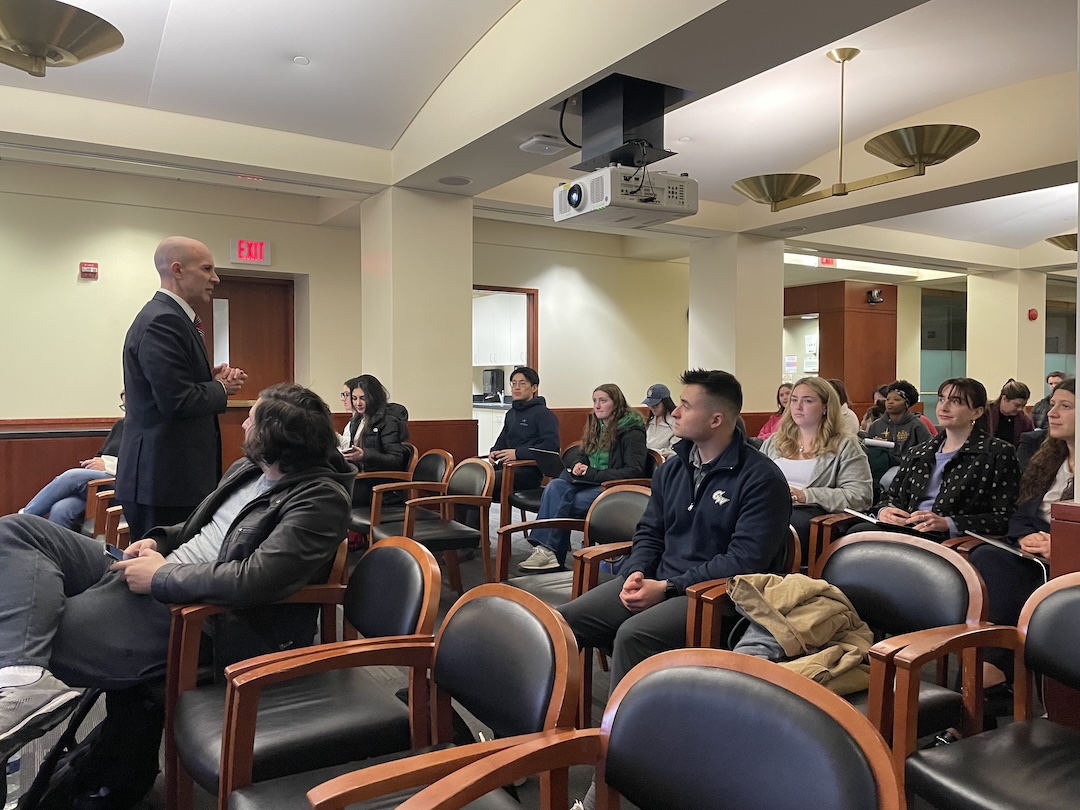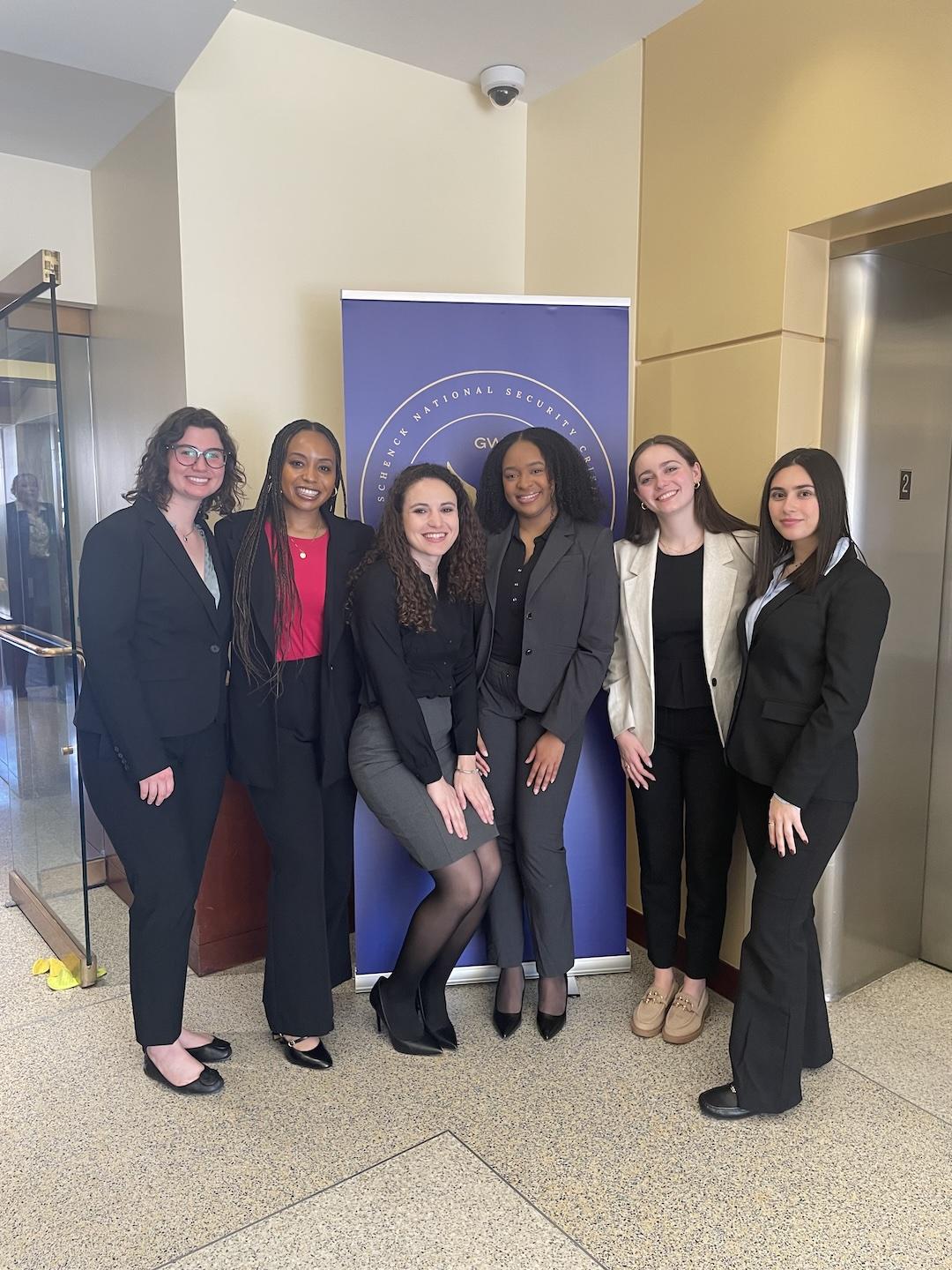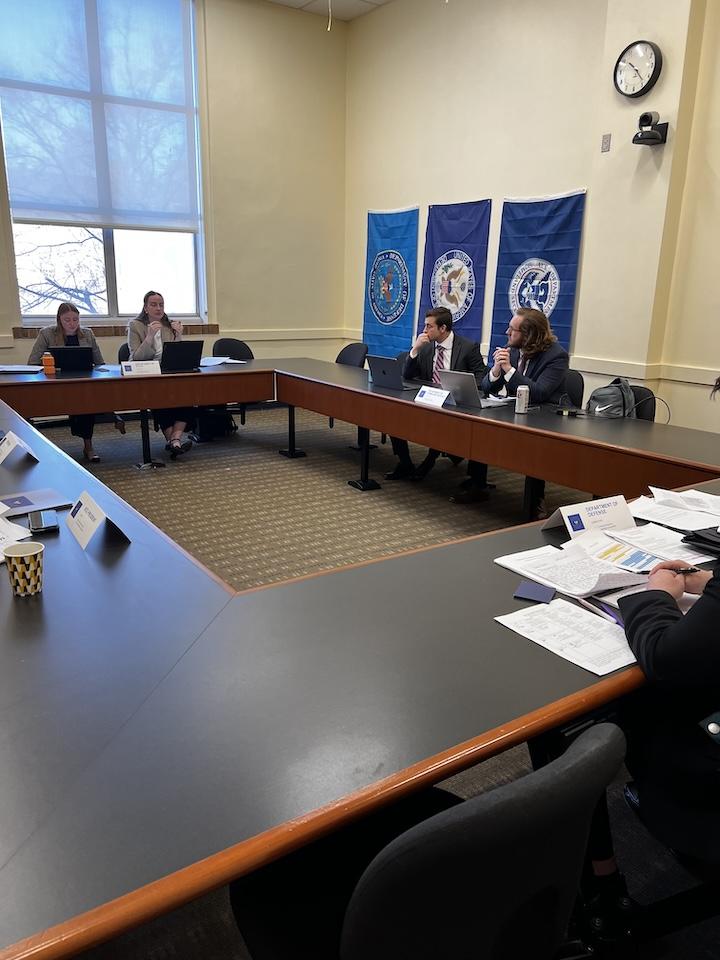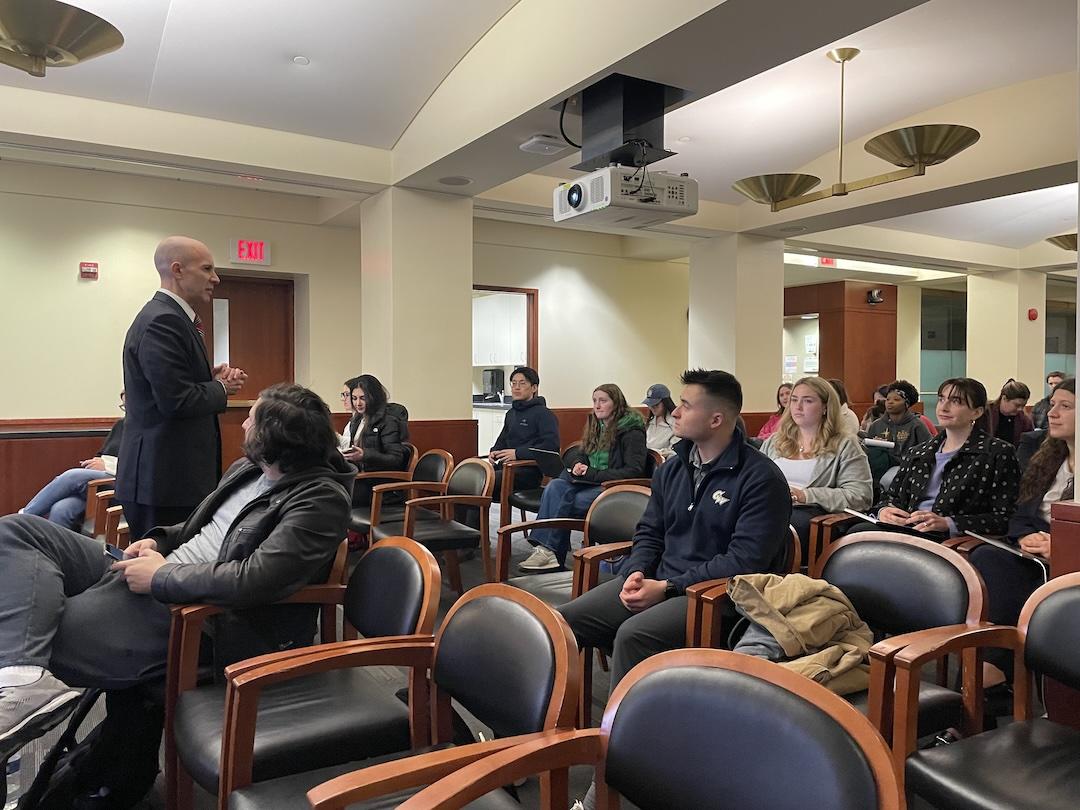The George Washington University Law School's Alternative Dispute Resolution (ADR) Board successfully hosted its second annual Schenck National Security Crisis Negotiation Competition on February 23. The competition, which has quickly become a signature event for 1L students interested in national security law, offered participants the opportunity to develop negotiation skills in a realistic crisis scenario.
Under the exceptional leadership of Competition Co-Chairs Jessica Buchanan and Diana Metz Arguello, this year's competition saw increased participation and engagement from both students and the national security law community. Their meticulous planning and execution resulted in a seamless event that challenged participants while providing valuable learning experiences.
The ADR Board, comprised of dedicated 2L and 3L students, provided essential support through judging the first round of the competition and offering guidance to participants. Their commitment to fostering negotiation skills among their peers was evident throughout the event.
The competition would not be possible without the generous endowment provided by Associate Dean Lisa Schenck and her husband James Schenck. Their commitment to supporting national security law education at GW Law has enabled this valuable experiential learning opportunity to flourish and grow.
This year's competition demonstrated the remarkable talent and promise of our 1L students. They tackled complex national security challenges with sophistication and poise that would impress many seasoned practitioners. The competition not only tests negotiation skills but also introduces students to the multifaceted nature of national security decision-making, where law, policy, and strategic considerations must all be balanced.
Professor Robert Baxter
Competition Director

Participants benefited from exceptional pre-competition presentations from distinguished faculty and practitioners who provided invaluable insights into the roles and legal authorities of various government departments: Professor Gountanis for the Department of Homeland Security, Professor Buatte for the Department of State, Professor Baxter for the Department of Justice, and Ms. Schiffer for the Department of Defense. These presentations offered students a comprehensive overview of each department's role in national security matters, helping competitors better understand the legal frameworks, authorities, and practical considerations that would inform their negotiation strategies.
This year's competition centered on a timely and complex scenario involving a political crisis in Venezuela. Participants were tasked with representing one of three U.S. government departments—Defense, State, or Homeland Security—in a National Security Council meeting to address the aftermath of a contested Venezuelan election, civil unrest, and potential Russian intervention in the region. The prompt required students to navigate delicate diplomatic, military, and humanitarian considerations while advocating for their department's proposed course of action. Teams needed to demonstrate not only negotiation skills but also a nuanced understanding of U.S. foreign policy objectives and national security priorities.
After intense preliminary rounds and a challenging final negotiation, the following teams emerged victorious: Aiden Wechsler & Shane McHugh won First Place (Overall Best Team) and were also named Top Team for Department of Defense; Maegan Taback & Zoe Jensen were recognized as Top Team for Department of State; and Lyndon Guest & Gabriel Jones earned the title of Top Team for Department of Homeland Security. The final round featured exceptional performances judged by distinguished professionals and professors in the national security field, who provided valuable feedback to participants.
For students inspired by the competition, GW Law offers a robust selection of national security law courses for the Fall 2025 semester. The curriculum includes specialized classes in Computer Crime, Space Law, Cybersecurity Law and Policy, Artificial Intelligence Law and Policy, and Military Justice, among others. Registration for these courses will open in March.
This competition would not be possible without the generosity of Dean Schenck, the guidance of Prof. Baxter, and the hard work of the ADR Board. They are all to be commended for a competition that only grew stronger in its second year
Dean David Johnson
Dean of Advocacy Programs

In a statement following the competition, Dean Johnson of Advocacy Programs remarked: "This competition would not be possible without the generosity of Dean Schenck, the guidance of Prof. Baxter, and the hard work of the ADR Board. They are all to be commended for a competition that only grew stronger in its second year."
The ADR Board encourages interested students, professionals, and faculty to get involved in next year's competition. Opportunities include volunteering as judges, contributing to prompt development, or serving on the organizational committee. Those interested in participating should contact the ADR Board at natlsecurity law [dot] gwu [dot] edu.
law [dot] gwu [dot] edu.
As GW Law continues to strengthen its position as a leader in national security legal education, events like the Schenck National Security Crisis Negotiation Competition provide invaluable practical experience that complements classroom learning and prepares students for careers in this critical field.











